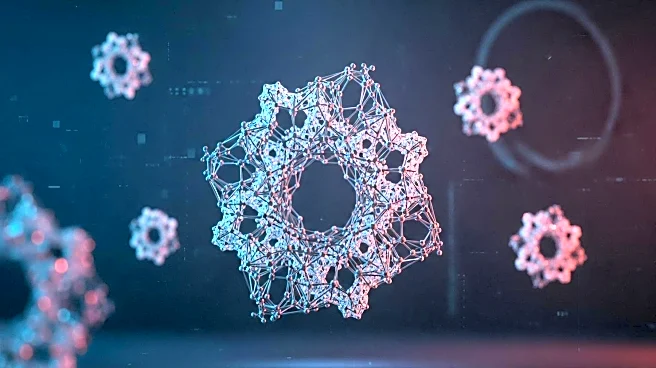What's Happening?
Researchers have identified a potential vulnerability in biosecurity systems related to AI-designed proteins. These systems, which screen DNA orders for potential threats, may miss AI-designed toxins due to their novel structures. The current screening process involves scanning DNA sequences for known threats, but AI-designed proteins can evade detection by creating new, unrecognized sequences. This discovery highlights the need for updated screening protocols to address the evolving capabilities of AI in designing biological materials. The research underscores the importance of enhancing biosecurity measures to prevent the misuse of AI technology in creating harmful biological agents.
Why It's Important?
The emergence of AI-designed proteins as a biosecurity concern is significant due to the potential risks they pose to public health and safety. As AI technology advances, the ability to design novel proteins that can bypass existing security measures increases, necessitating a reevaluation of current protocols. This development could impact industries involved in biotechnology, pharmaceuticals, and national security, as they may need to implement more sophisticated screening processes. Ensuring robust biosecurity measures is crucial to prevent the creation and distribution of harmful biological agents, protecting society from potential bioterrorism threats.










